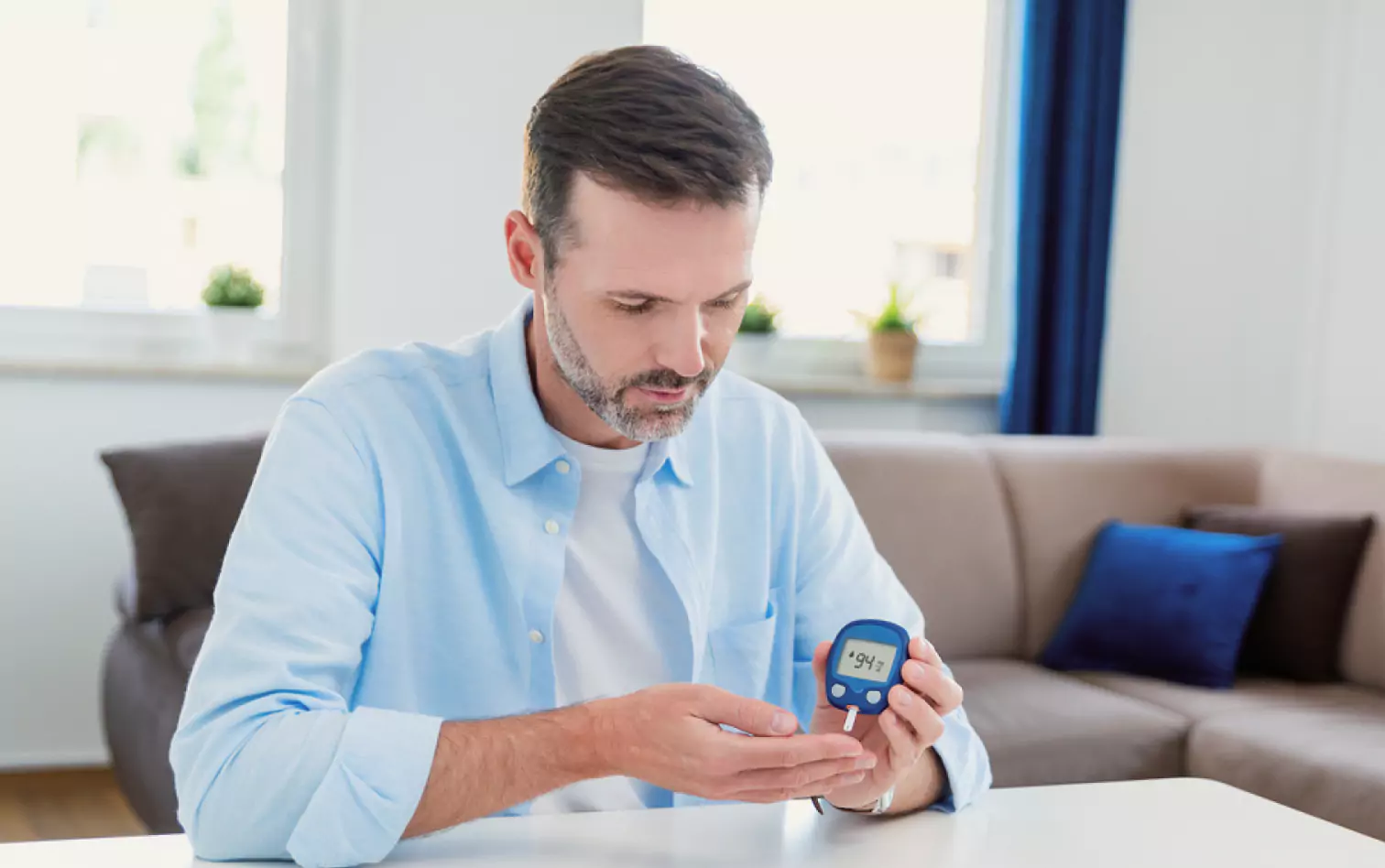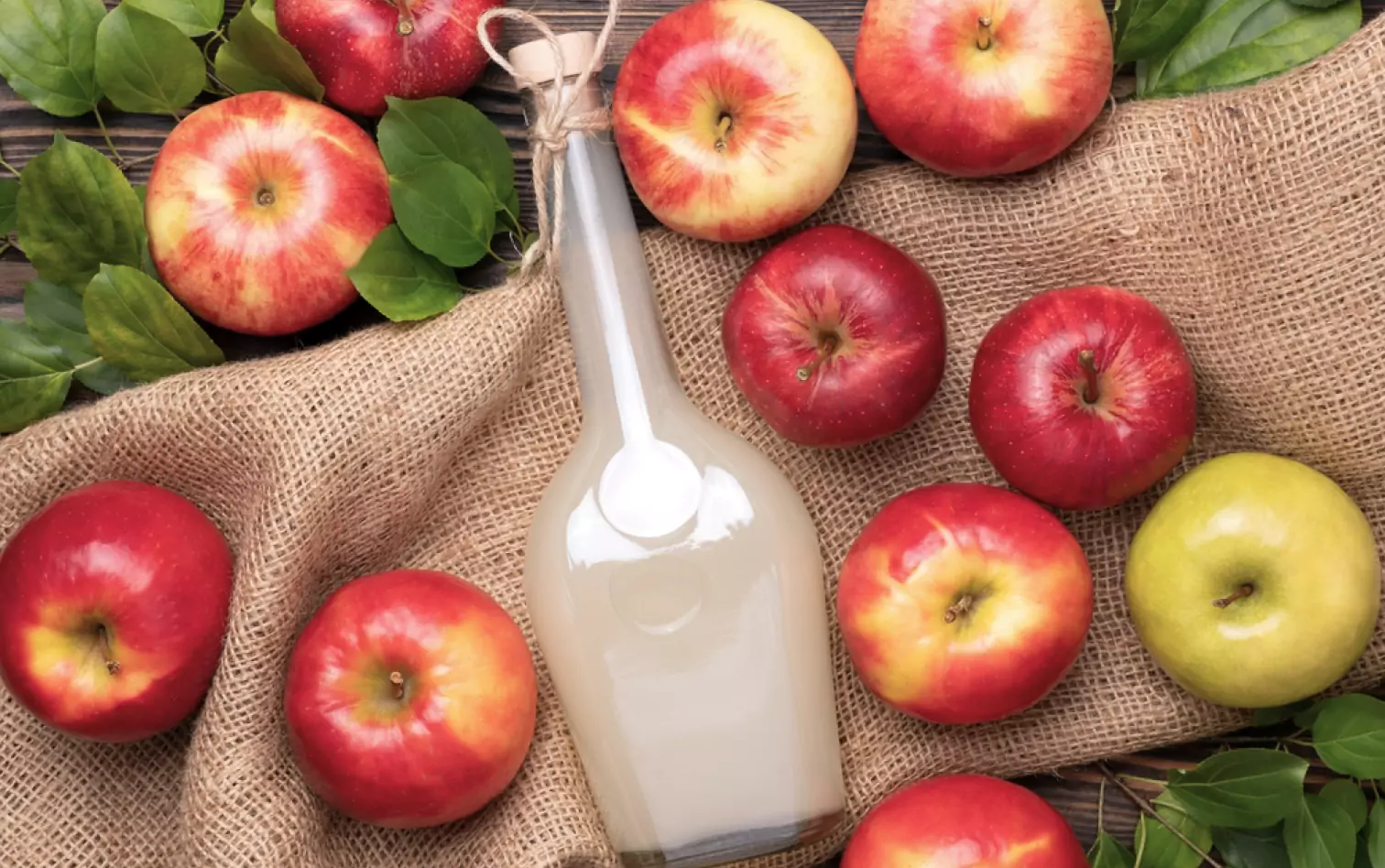Vinegar and Blood Sugar: Does It Reduce the Spike?

Key Takeaways
If you live with diabetes, you’re probably always looking for ways to keep your blood glucose levels under control. And even if you don’t have diabetes, preventing spikes in your blood sugar levels can be an important preventive health measure. Enter vinegar—a cooking, cleaning, healing superstar that may even help to control these blood glucose levels. After all, regardless of what you’re using to manage your blood sugar levels, there are always more tools you can add to your kit. So, might a little vinegar solution be one of them?
People use different types of vinegar as home remedies for such a wide variety of things, from cleaning your stove to weight loss potions. And, yes, there’s some buzz around it having a positive impact on your blood glucose levels too.
But while some researchers believe vinegar can improve glucose levels, others think the effect is minimal at best. So, what's the truth when it comes to vinegar and blood glucose levels? Can consuming this kitchen staple help control your blood sugar levels? And is there a particular type of vinegar (apple cider vinegar, we’re looking at you here) that stands out over others? Read on to find out more.
What Exactly Is Vinegar?

Vinegar is made through a process of fermentation, specifically, the fermentation of carbohydrates like potatoes, rice, fruits, and grains. First, the ingredients go through a process that turns them into alcohol, then through a second fermentation that leads to vinegar.
There are many different types of vinegar, each with unique properties and benefits. One of the most popular in the wellness world is apple cider vinegar, a variety of vinegar made from apple cider.
Other types of vinegar include white vinegar, malt vinegar, balsamic vinegar, rice wine vinegar, and champagne vinegar. Each has a unique flavor and use. For example, white vinegar is often used as a natural cleaner or to make pickles, and Balsamic vinegar is popular as salad dressings or marinades.
When it comes to health benefits, vinegar is often studied for its effects on glucose and insulin levels. Most notably, research suggests it slows gastric emptying speed. It refers to the rate at which your stomach empties partially digested food into your intestines for further processing and nutrient absorption. It slows down the absorption of sugar from those broken down foods, reducing the spike you'd typically see when it hits your bloodstream.
What The Research Says About Vinegar’s Impact on Blood Sugar

What does the research say about vinegar and blood sugar? Let’s take a second to focus first on one of the most common types of vinegar, especially when it comes to health and wellness. Apple cider vinegar is one of those special ingredients that seem to have a million and one uses. And while research is still ongoing, many suggest that consuming it before meals may slow the absorption of sugar into your bloodstream, which can help prevent glucose spikes.
Having apple cider vinegar at bedtime may also have a positive impact. Acetic acid, the main component in apple cider vinegar, can help reduce starch digestion and gastric emptying during sleep. It can also change how your body breaks down glucose, improving the pre-breakfast rise in fasting glucose levels.
It’s not surprising—we’ve all heard the stories about how a few tablespoons of apple cider vinegar a day can keep the doctor away! Some people swear by apple cider vinegar for weight loss, and others claim it helps insulin responses. Some add it to a daily cup of tea to optimize their health. But how much of this is supported by scientific evidence? Are all types of vinegar good for you? Let’s take a look at the research:
Type 2 Diabetes
A study conducted in 2007 shows that those with type 2 diabetes who had a bit of this vinegar daily before bed found a positive impact of that consumption on their glucose balance upon waking. It could be a promising way to help those with type 2 diabetes.
Another study conducted by Chinese scientists found the same results. They hope that doctors and clinicians can start using apple cider vinegar as a dietary addition to treatments to help people with type 2 diabetes. As with most studies revolving around vinegar, there’s more research to be done here.
Type 1 Diabetes

Research released in 2010 in the Diabetes Care Journal tested people with type 1 diabetes hoping that vinegar consumption might help their hyperglycemia. The participants stopped taking their insulin injections for two days and took vinegar instead.
The process inside the body that may be causing a reduction in blood glucose levels still needs more research. Still, the results found that two tablespoons of apple cider vinegar per day did help reduce instances of hyperglycemia among the participants.
Glycemic Index
A clinical trial conducted in 2019 tested the effects of vinegar on glycemic indices (your glycemic index), blood pressure, and oxidative stress. The goal was to identify whether apple cider vinegar could help patients with diabetes and dyslipidemia (elevated cholesterol).
Researchers found that vinegar consumption may help people control their glycemic response and oxidative stress levels.
Hyperglycemia

ASU professors Carol Johnston and Andrea White conducted a study in a small group of men and women taking hyperglycemic medication but not insulin. They found improved fasting glucose levels within the group. The hope is that studies like this can help control blood glucose levels and chronic conditions with diet and natural medicine alongside more traditional medical advice and treatment.
Carbohydrate Impact
Other studies have found that vinegar consumption can lower the impact of carbohydrate-heavy meals on glucose levels. It may help people reduce their glucose spikes after carbohydrate heavier meals, making meal planning a little bit easier. Again, research here is in its nascent stages, so there’s still more to be done.
Are There Downsides to Vinegar Consumption?

Adding a little extra vinegar to your diet may not seem like a dangerous thing. After all, the worst that could happen is that it won’t actually help you lose weight, lower triglyceride levels or reverse obesity and prediabetes, right?
Remember that while the potential health benefits of apple cider vinegar may make it tempting to try out, no dietary change is zero risk. A lot will depend on how your body reacts to certain foods, and for some people, one or all types of vinegar may do more harm than good. It’s essential to speak with a healthcare professional like a doctor or registered dietitian before making any changes and knowing all the risks involved.
For vinegar, it can vary. The most important thing to remember is that all vinegar, including apple cider vinegar, is acidic. It’s a combination of acetic acid and water, and some types can inflame your esophagus or give you acid reflux. For some people, even diluted vinegar can have this effect. So, remember to take that into account before you pick one.
The Risks and Side Effects of Apple Cider Vinegar

Apple cider vinegar is one of the most popular types of vinegar and is safe to consume. In fact, we love adding it to our meals! But it can cause some side effects. And since you should always be careful when adding new foods to your diet, it’s a good idea to know what those are!
Some of the side effects of consuming apple cider vinegar include:
- Apple cider vinegar slows down the rate at which your food reaches the small intestine so it may make conditions such as Gastroparesis worse.
- Too much vinegar can cause indigestion for some.
- Consuming too much vinegar (or any acidic food) can cause tooth enamel to erode.
- Vinegar may react poorly with different types of medication. You should always consult with your doctor and pharmacist about the medicines you take and any natural remedies you’re using to avoid adverse health effects.
Typically, healthcare professionals recommend that you dilute a tablespoon or so of your vinegar into a full eight-ounce glass of water. It can help reduce the effects that the acidic content of vinegar contains.
It's a good idea not to add any supplements or medication to your diet without consulting a healthcare professional. But just for a little additional information, if you're already taking any (like apple cider vinegar tablets), do so with a full glass of water. This way, when the capsule seal breaks, you aren’t exposing your stomach to the undiluted acid.
Avoiding the undiluted acid can help:
- Prevent stomach ulcers, which can happen if the acidic vinegar eats through your stomach lining.
- Prevent tooth damage from acid exposure.
Adding Apple Cider Vinegar Into Your Diet

Apple cider vinegar can be pretty delicious! So, while there’s still research to be done on all its potential health benefits, there are other reasons to add it to your diet if your body responds well to it. For example, did you know it’s delicious in a salad and makes a pretty good drink?
Remember that taking more is not better when it comes to taking vinegar. Talk to your doctor or a registered dietitian about adding apple cider vinegar into your diet. Here are a few fun ways that you can incorporate it into your diet using foods you likely already eat:
- Use vinegar to make a salad dressing. Just combine apple cider vinegar with olive oil and any natural flavorings you’d like. It’s low-calorie and a healthy alternative to traditional salad dressings.
- Want to skip the salad? Dip some bread in a dressing made with apple cider vinegar, honey, mustard, and olive oil.
- Add a teaspoon of apple cider vinegar to sparkling or fruit-infused water for a tangy drink.
- Add it to your yogurt or blend it in your smoothie or shake.
- Add a teaspoon of apple cider vinegar and some honey to your green tea for a delicious twist.
Vinegar isn’t a cure-all, but it can be an excellent addition to a balanced, healthy diet if it works for you. And watch this space for more on the potential benefits of apple cider vinegar and some glucose-friendly ACV drinks our dietitians love.
Find the right Nutrisense programto turn insight into progress.
Go Beyond Glucose Data with Nutrisense
Your glucose can significantly impact how your body feels and functions. That’s why stable levels are an important factor in supporting overall wellbeing. But viewing glucose isn't enough. Nutrisense, you’ll be able to learn how to use your body's data to make informed lifestyle choices that support healthy living.
One-to-one coaching
Sign up to access insurance-covered video calls to work with a glucose expert: a personal registered dietitian or certified nutritionist who will help tailor your lifestyle and diet to your goals.
Monitor and measure what matters
With the Nutrisense CGM Program, you can monitor your glucose with health tech like glucose biosensors and continuous glucose monitor (CGM)s, and analyze the trends over time with the Nutrisense App. This will help you make the most informed choices about the foods you consume and their impact on your health.
Find your best fit
Ready to take the first step? Start with our quiz to find the right Nutrisense program to help you take control.

Katie is a dietitian at Nutrisense. With over 11 years of experience as a dietitian in many areas of nutrition, Katie has worked as a clinical dietitian within a hospital, as well as in the fields of diabetes, sports and performance nutrition, recovery from addiction, and general wellness. She’s also an athlete and has run 8 marathons, including the Boston Marathon.




